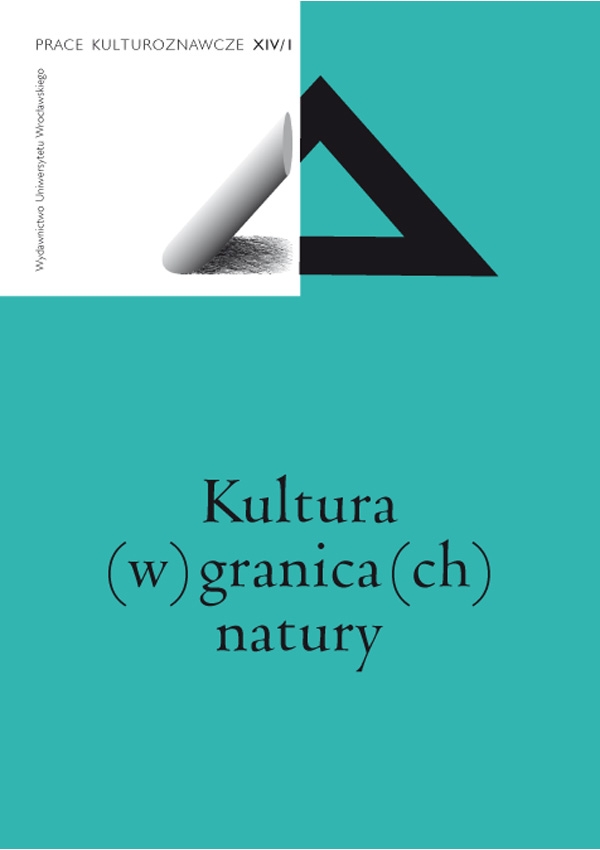

W kręgu pytań o współczesną humanistykę

Nature and culture in hermeneutic culturalism
I reflect on a version of culturalist understanding of culture — which I call hermeneutic culturalism — and compare it with the reductionist approaches and Latour’s natur-cultur ontology. According to hermeneutic culturalism, 1 referring to oneself is a distinguishing trait of human beings, the basis of their culturality; 2 modern humans understand and treat themselves at once as cultural and natural beings; 3 social practice is correlated with what is treated and particularly understood in them and in their environment as cultural, and with what is treated as natural. Hermeneutic culturalism is an epistemological anthropocentrism, but it is not universalist as it does not abstract from the fact that each concept is particular; it is not dogmatic either, as it constitutes a historic awareness and assumes a hermeneutic circle; and, finally, it is not objectivist, as it does not replace science, but rather leads to a symmetrical understanding of the study practice of natural sciences and objectivising humanities as idealising abstracting from — respectively — what is understood as cultural or what is understood as natural.